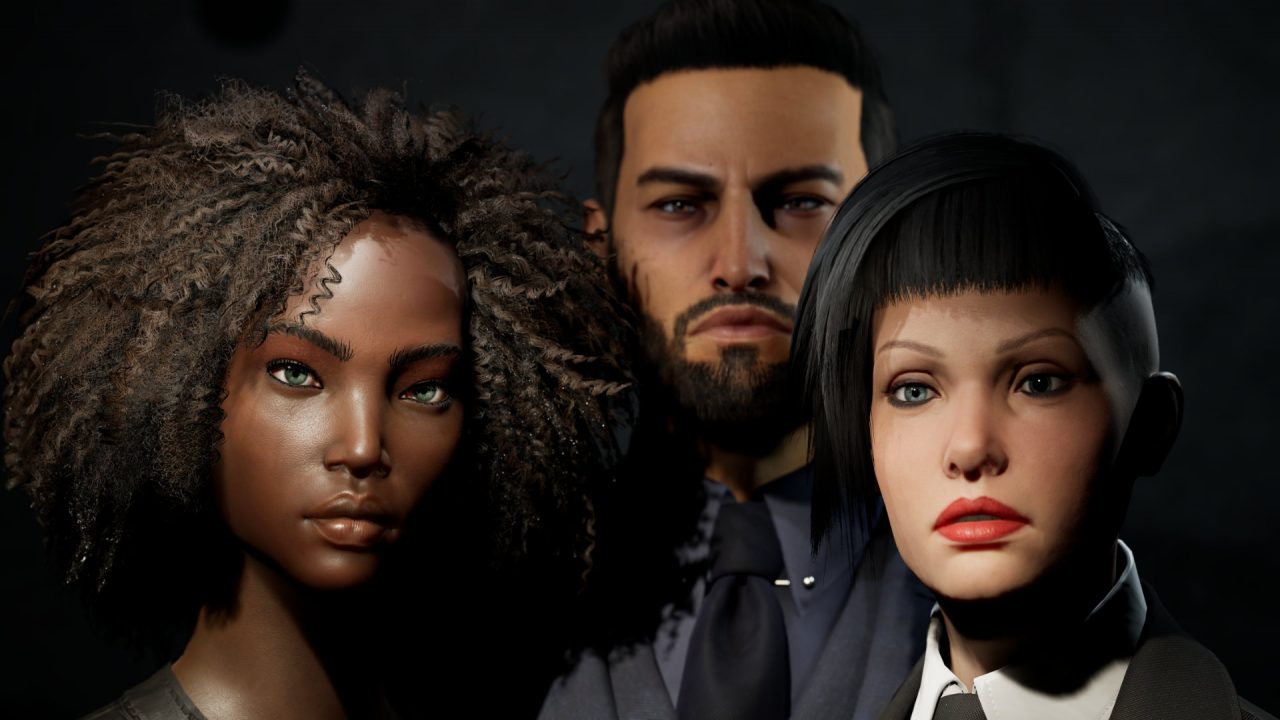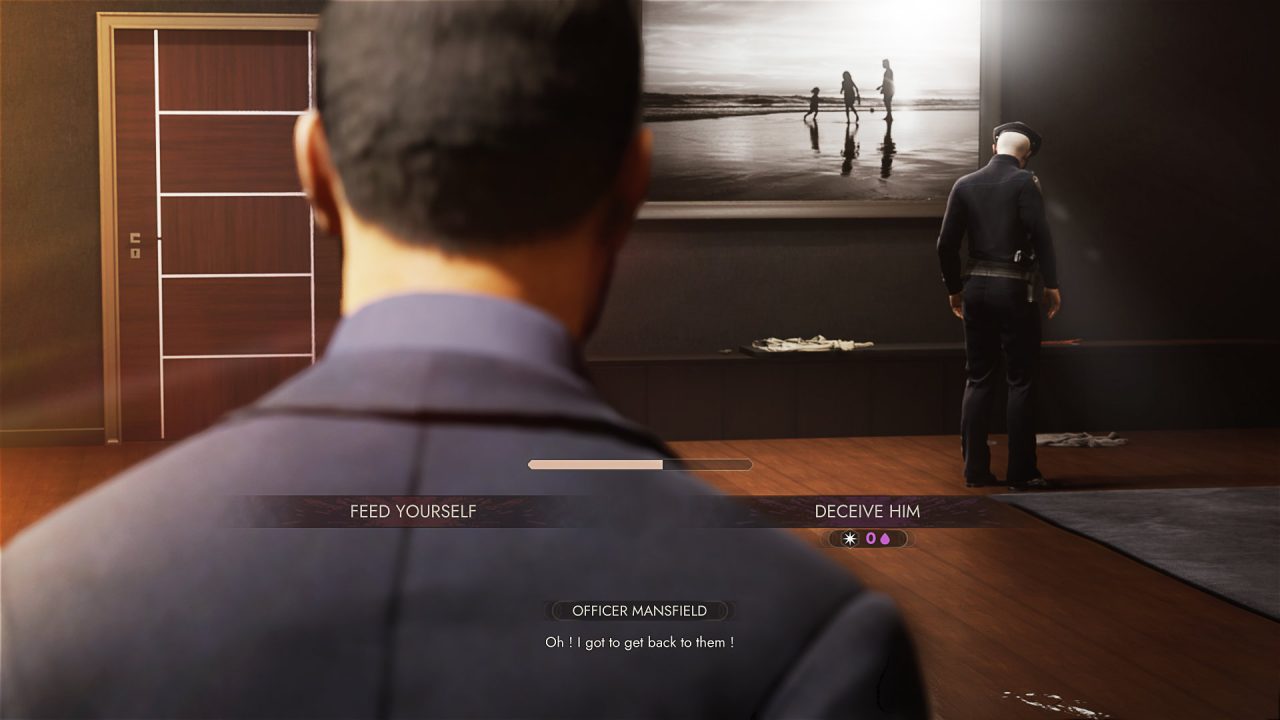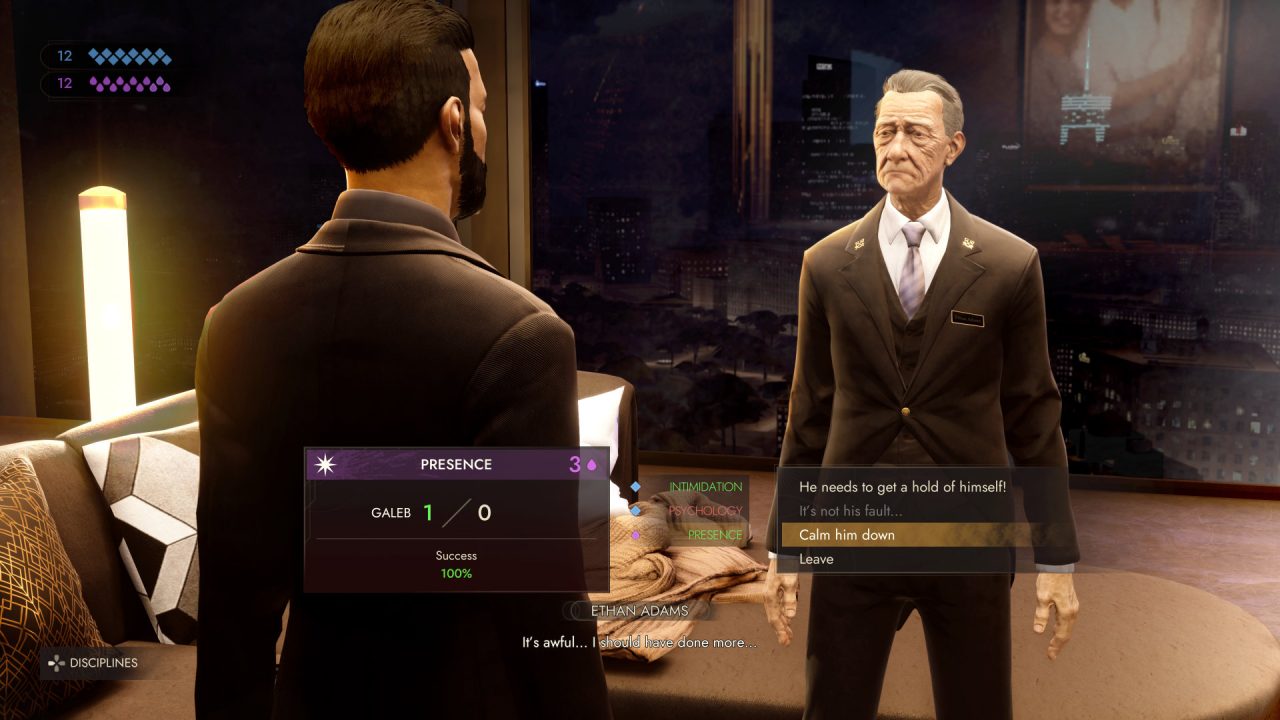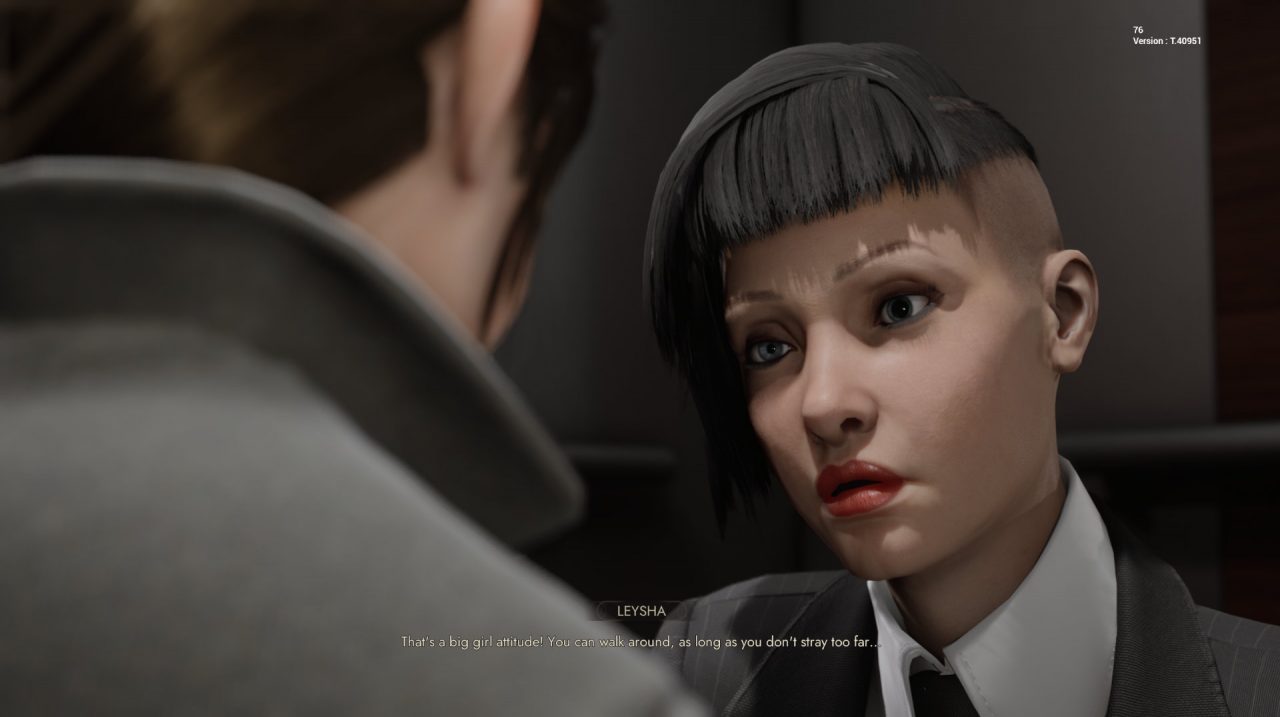I’ve read about Vampire: The Masquerade in passing, but I never looked into the franchise that much in the past. I became more interested in video game adaptations of the tabletop RPG when Vampire: The Masquerade – Bloodlines 2 was announced in 2019, but my interest waned with the numerous delays that game has suffered. Enter Vampire: The Masquerade – Swansong, a new narrative RPG from Big Bad Wolf, and I finally have something to sink my teeth into, metaphorically speaking of course. I was a little nervous diving into a game set in a universe I have almost no experience with, but after a bit of a whirlwind opening and some healthy codex perusing, I found myself getting sucked into the story and invested in the characters.
In Swansong, vampires not only exist — they thrive. Secretly running society from the shadows, these bloodsuckers have their own clans, laws, and politics, but the most important rule is that they must not expose themselves to mortals. The titular Masquerade exists to ensure that the Kindred — AKA vampires — stay hidden, and any who go against it are harshly and often fatally dealt with. One evening in Boston, a party meant to celebrate an alliance between the local Camarilla sect and the Hartford Chantry goes horribly wrong, and a Code Red (think shelter in place) is issued. Suddenly, it’s all hands on deck as the creatures of the night try to figure out what happened.

You play as three vampires within the Camarilla. Emem Louis is a free spirit who is more interested in running her clubs than getting tangled up in court politics, particularly when her ex-lover is a member of said court. Galeb Bazory is one of the eldest members of the Camarilla and is staunchly loyal to their Prince, Hazel Iverson. Leysha is a troubled woman who experiences premonitions and has an eight-year-old daughter named Halsey. As you progress through Swansong’s story, you take turns playing each of these characters, and while their paths start out separate, they eventually all converge for the finale.
I had a lot of fun getting to know these three protagonists. Emem and Leysha in particular have some interesting and shocking developments, and Galeb’s cold, often ruthless dedication makes him an intimidating, if slightly more one-note, character to play. The supporting cast is also pretty good, and I enjoyed learning about the various conflicts between members of the court. Intrigue is the perfect word to describe the plot and characterization in Swansong. If you’re not learning about what caused the Code Red and whether the Kindred are in danger, you’re digging up dirt on your fellow vampires and making moves that may impact your standing within the Camarilla. It was also really nice to see some queer representation in the main cast and even some minor characters.
Most chapters have one or more points that force you to make a decision that will impact how things play out. Some of these decisions influence later chapters and the game’s ending, while others seem important but end up not mattering much. Most significantly affect the resolution of the chapters in which they occur, and some can even have consequences for other characters. At one point, I chose to unleash a particularly nasty monster to facilitate a character’s escape from a dire situation. A few chapters later, I then had to deal with that creature as another character, and if I messed up, that character could wind up dying. In a nice gesture of transparency, Swansong actually tells you what you could have done differently at the end of each chapter. Don’t worry, the hints are vague enough that you’re not spoiled; I found that they gave me extra incentive to play through chapters again.

Though each character travels to different locations with different objectives, your progression through each chapter generally involves exploring environments to gather information, find an important target, or eliminate problems — be they compromising documents or flesh and blood liabilities. Thoroughly exploring every nook and cranny frequently pays off; for example, you can often discover keys and computer passwords by searching the environment. There are also some puzzles you must solve to progress, and careful observation of the surrounding area is key to finding the clues you need. As a detail-oriented person, I liked being rewarded for my curiosity and problem-solving skills, but there were a few occasions when I felt stumped and a little frustrated as a result.
Speaking of skills, one of the most important aspects of Swansong is how you level up your three protagonists. Completing objectives and discovering critical information grants you experience, which you can use at the start of a chapter to increase a character’s skills and improve their supernatural disciplines. Every character has access to the same skills, including things you can use during dialogue, like persuasion, and stuff like security or technology, which help bypass locks and passwords if you can’t or don’t want to hunt them down. Using skills costs willpower, and while you can replenish this resource to a certain extent, it’s limited enough that you have to really think about where your skills will be the most useful.
Each character also has three disciplines, one of which is unique to them, and these allow the trio to do more traditional vampire feats, like enhance their senses and dominate minds. For example, Emem can teleport from spot to spot in an instant, Galeb can endure physical pain that would break a lesser vampire, and Leysha can make herself invisible or take on the appearance of another person. This helps make each character feel more distinct, though Emem and Leysha make much more use of their unique disciplines than Galeb does.

Similar to how skills cost willpower, using your disciplines increases your hunger for blood. While you can find objects to sate this desire, you usually have to turn to hunting human prey to get rid of it. Luckily, every chapter has at least one safe zone you can use to lure and feed upon an unsuspecting mortal, though you have to be careful not to kill them by drinking too much. This isn’t hard most of the time, but there were a few occasions where I definitely let go of the trigger in plenty of time, only to have the game not register it and tell me I’d slain my prey. Thankfully, the consequences for killing mortals and other frowned-upon acts like feeding on rats aren’t terribly severe. Each instance increases a suspicion meter shared by all characters, and the higher this meter gets, the harder dialogue skill checks become. You can still get the best ending even with the maximum penalties, but I kind of wish the game gave you opportunities to lower your suspicion; it could have created some engaging scenarios, at the very least.
As in a lot of RPGs, you don’t earn enough experience to level everything up in Swansong, so you have to decide what skills and disciplines you want to focus on. I like how the scarcity of resources means you can’t just Jedi Mind Trick your way through everything on one playthrough. You won’t be able to use every skill or discipline in a given situation, which encourages replays to see how things could turn out with different builds.
On the other hand, I don’t like that you can only spend experience points at the start of a chapter. On a first playthrough, you have no idea which skills and disciplines will be the most helpful. I usually ended up spending points based more on the general sense I got of each character’s strengths and weaknesses. Sometimes, this worked out for me, but other times it felt like I was just guessing about what I might need. You can restart a chapter if you find that you really need to reallocate experience, but that can result in a fair amount of wasted time, especially since the game oddly doesn’t let you skip dialogue unless you’re using the level select feature. Speaking of level select, it’s a nice addition if you want to go back and see how things can change in a given chapter. But if you’re thinking you can use it to make different choices in one chapter and then skip ahead to the ending, think again. Once you choose a chapter to load, you have to play the entire rest of the game from that point, which is a bummer.

In terms of visuals, Swansong is a bit of a mixed bag. The overall fidelity of the environments is quite nice, and character models themselves look good. But animations are stiff and almost cartoonish at times, which might have worked if the game was going for a more stylized look instead of a realistic one. Facial animation in particular is quite bad, especially for minor characters, and it can become almost laughable if a character is supposed to express an exaggerated emotion like shock. There are also a lot of clipping issues. Hair clipping through bodies, bodies clipping through clothing, and even a few instances of clothing clipping through clothing for good measure. It’s not enough to ruin the experience, but it can be distracting.
On the audio side of things, the voice acting is pretty decent. The playable characters all sound great, and most of the supporting cast is good, with a few glaring exceptions like Hazel. The music is unfortunately nothing to write home about. A few pieces work really well in the context of the scenes they accompany, and two instrumental tracks actually have vocal versions that play during the credits, which is kind of neat. But other than that, the soundtrack is forgettable and repetitive.
As for performance, Swansong ran well for my aging rig at max settings. I did encounter several reoccurring bugs during my playthrough, such as objectives not displaying, being unable to run, and losing the ability to adjust the camera’s y-axis — yes, just the y-axis. In all of these cases, reloading my save fixed the issue, and as you might expect for a narrative game, the autosaving is quite aggressive, so this never resulted in lost progress. Other than minor issues like this, the game ran smoothly for me.
I must admit, I was a little overwhelmed when I started playing Vampire: The Masquerade – Swansong. But once I’d familiarized myself with the universe, it was easy to get invested in the game’s story and characters. The RPG elements give players a lot of options to tackle objectives, and the narrative nature of the game means there is ample incentive to do multiple playthroughs. The visuals can be a little distracting, and I have a few qualms with some of the mechanics, but I still enjoyed my first foray into the franchise. If you’re looking for a bite to tide you over until Bloodlines 2 is released, or if you just want a good narrative game where you get to play as vampires, then Swansong might just be worth sinking your fangs into.


